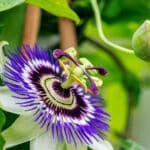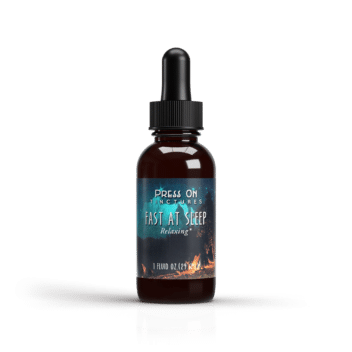
Passion Flower in Herbal Medicine
Passion Flower in Herbal Medicine
# Passion Flower in Herbal Medicine
The world of herbal medicine offers a multitude of natural remedies that have been used for centuries to treat various ailments. Among these, the passion flower stands out for its unique properties and benefits. This article delves into the role of the passion flower in herbal medicine, exploring its uses, benefits, and how it can serve as a natural sleep aid.
What is Passion Flower?
The passion flower, known scientifically as Passiflora incarnata, is a climbing vine native to the southeastern United States, Central and South America. It is recognized for its strikingly beautiful flowers and has been traditionally used in herbal medicine for its calming effects. The parts of the plant used for medicinal purposes include the aerial parts such as the leaves, stems, and flowers.
Historical Uses of Passion Flower
Historically, indigenous peoples of the Americas used passion flower as a sedative. It was employed to treat conditions such as anxiety, insomnia, and seizures. The Spanish explorers who encountered the plant in the 16th century were so impressed by its appearance that they named it “passion flower,” as its intricate floral structure reminded them of the passion of Christ.
Passion Flower in Modern Herbal Medicine
Today, passion flower is commonly used in herbal medicine as a natural remedy for anxiety and sleep disorders. It is available in various forms, including teas, tinctures, and capsules, making it accessible to those seeking natural alternatives to pharmaceuticals.
Benefits of Passion Flower
Natural Sleep Aid
One of the most notable benefits of passion flower is its efficacy as a natural sleep aid. Studies suggest that passion flower may help improve sleep quality by increasing the production of gamma-aminobutyric acid (GABA) in the brain. GABA is a neurotransmitter that reduces brain activity, which may help you relax and fall asleep more easily.
Anxiety and Stress Relief
Passion flower is also known for its calming effects, making it a popular choice for individuals experiencing anxiety and stress. It is believed to work by increasing GABA levels, which helps to reduce the activity of certain nerve cells in the brain, ultimately promoting relaxation.
Pain Management
In addition to its calming effects, passion flower has been used to manage pain. Some studies indicate that it may provide mild analgesic effects, potentially offering relief from headaches and other types of pain.
How to Use Passion Flower
Forms of Passion Flower
Passion flower can be consumed in various forms, each offering different benefits:
- Tea: Passion flower tea is one of the most popular forms. To make the tea, steep dried passion flower in hot water for about 10 minutes. This soothing beverage can be consumed before bedtime to promote relaxation and improve sleep quality.
- Tincture: A tincture is a concentrated liquid form of the herb. It is typically taken by adding a few drops to water or juice. Tinctures are convenient for those who prefer not to drink tea or take capsules.
- Capsules: Passion flower capsules are widely available and provide a convenient way to incorporate this herb into your daily routine. They are especially useful for those who are on-the-go or prefer a more measured dosage.
Recommended Dosage
The appropriate dosage of passion flower can vary depending on the form used and individual needs. Generally, for anxiety or sleep disorders, a typical dose may range from 400 mg to 900 mg per day. It is advisable to start with a lower dose and gradually increase it as needed, under the guidance of a healthcare professional.
Safety and Side Effects
While passion flower is generally considered safe for most people, it is important to be aware of potential side effects and interactions with other medications. Some individuals may experience dizziness, confusion, or drowsiness when using passion flower. It is also important to avoid operating heavy machinery or driving after consuming passion flower, especially in larger doses.
Pregnant or breastfeeding women should consult with a healthcare provider before using passion flower, as there is limited research on its safety in these populations. Additionally, individuals taking medications for anxiety, depression, or sleep disorders should speak with a healthcare professional to avoid potential interactions.
Conclusion
Passion flower has a long history of use in herbal medicine and continues to be valued for its calming effects and natural sleep aid properties. Whether you are seeking relief from anxiety, stress, or sleep disturbances, passion flower may offer a natural and effective solution. However, it is always advisable to consult with a healthcare provider before beginning any new herbal regimen to ensure it is safe and appropriate for your individual needs.
Incorporating passion flower into your herbal medicine cabinet can be a valuable step toward achieving a more natural and balanced approach to health and wellness. With its array of benefits, this remarkable plant holds the potential to enhance your quality of life naturally.


